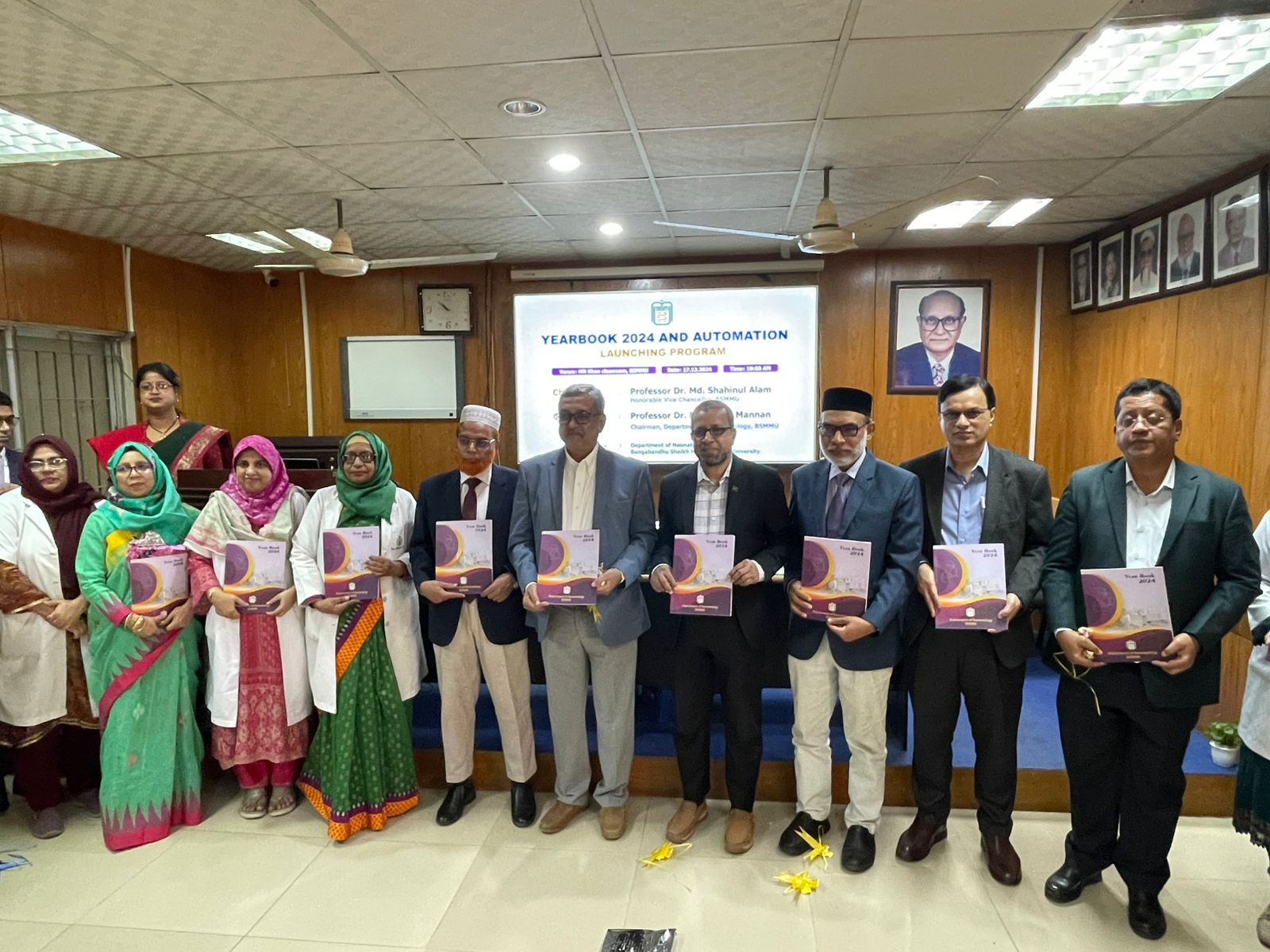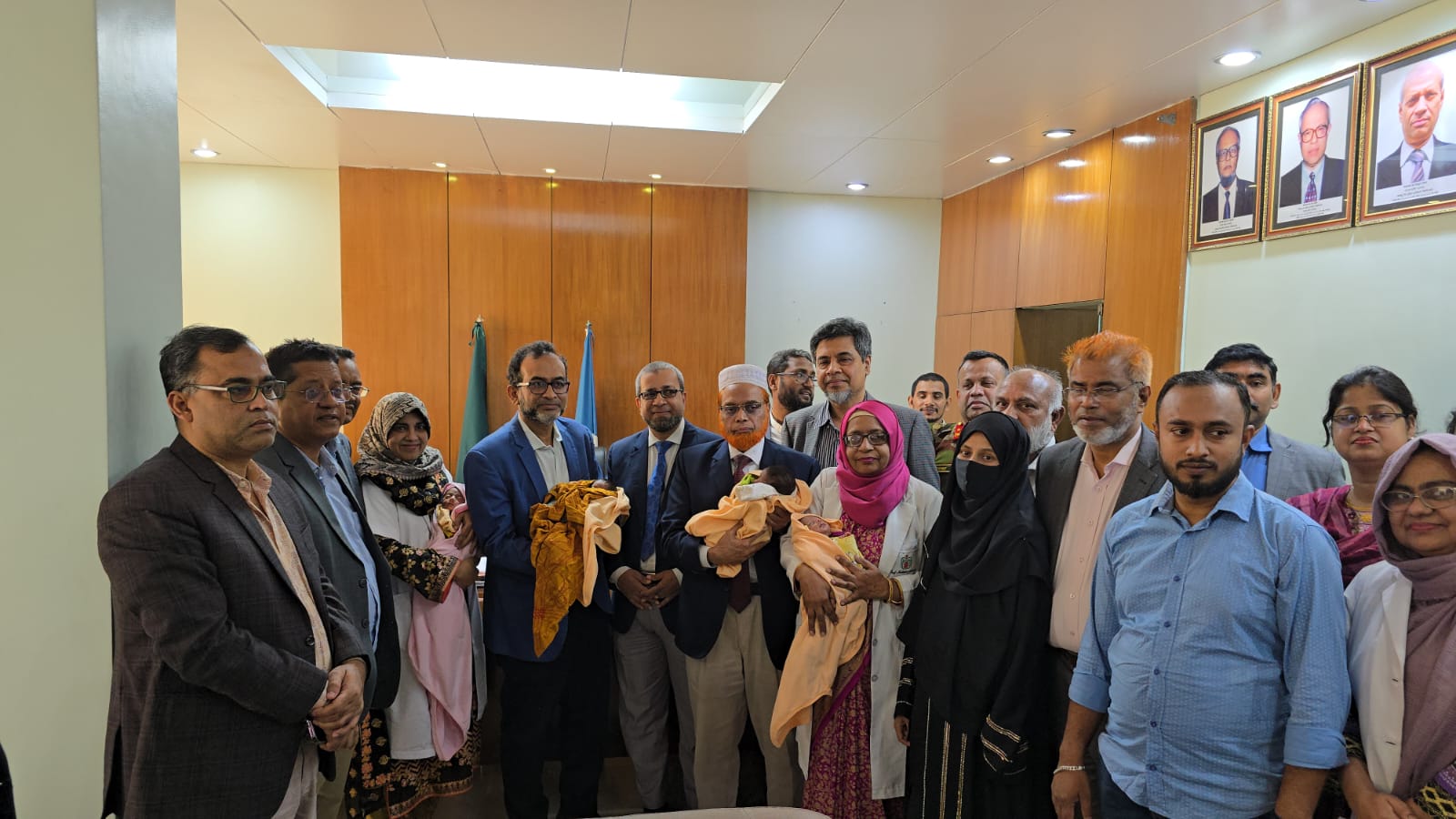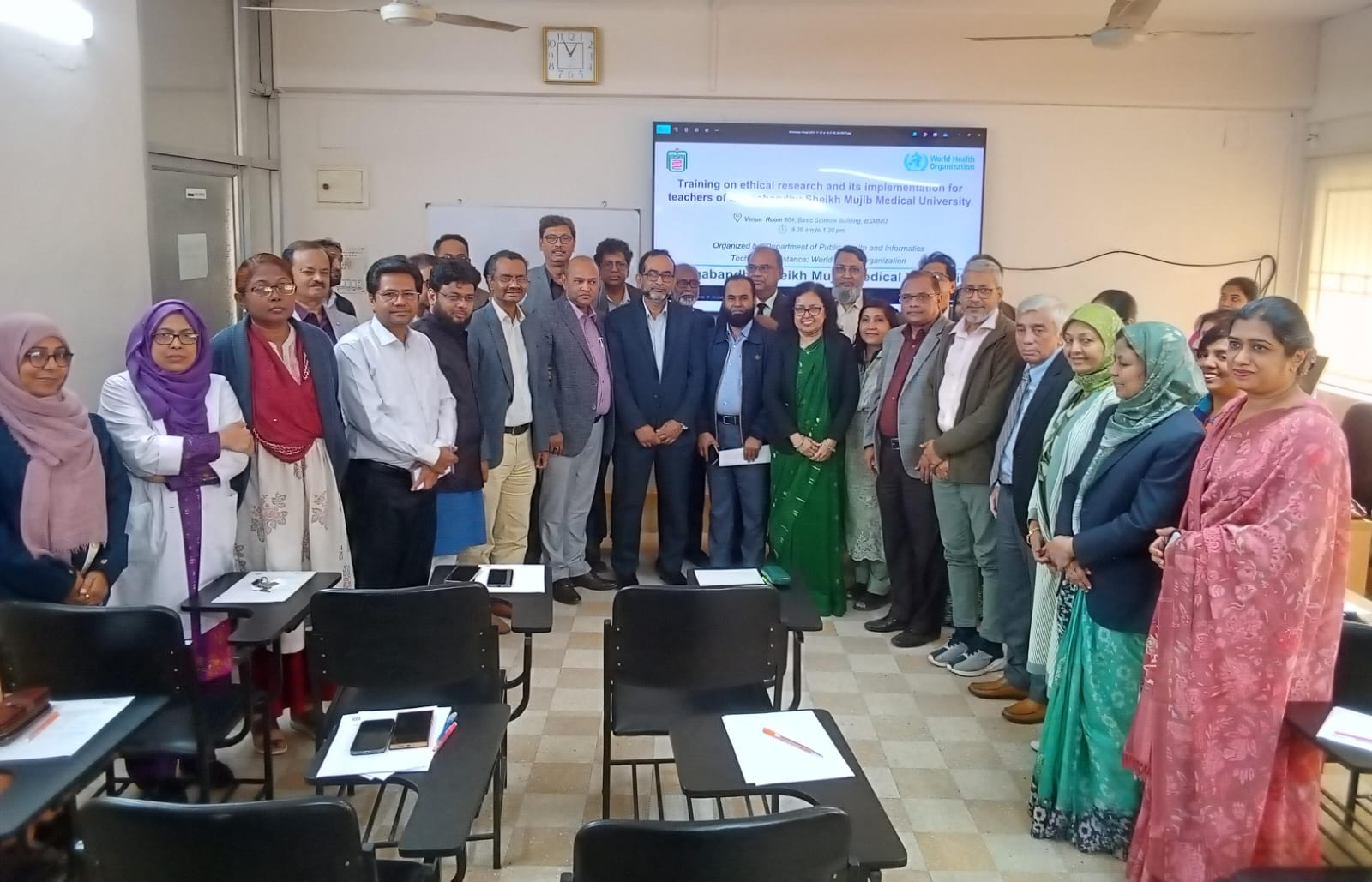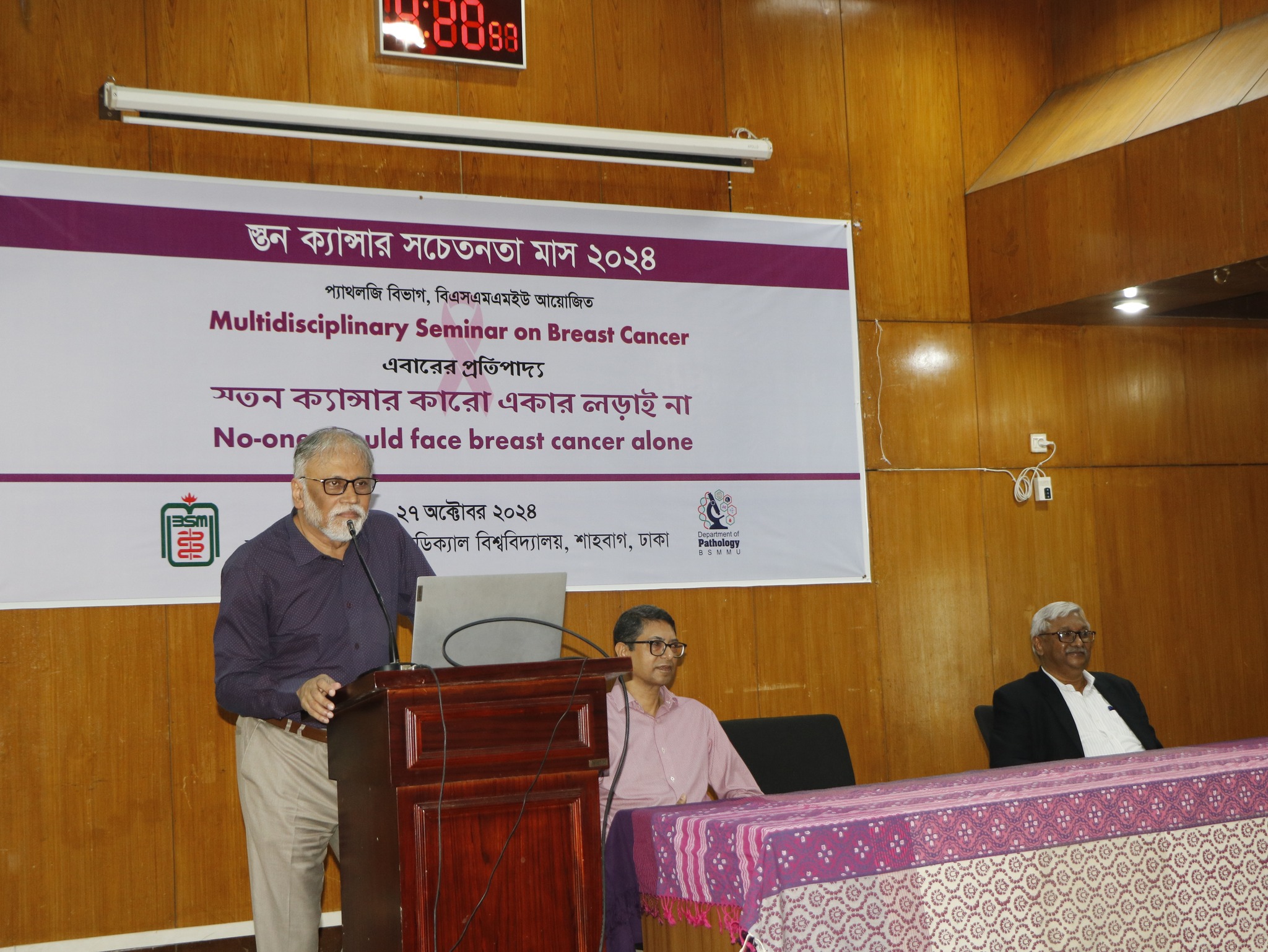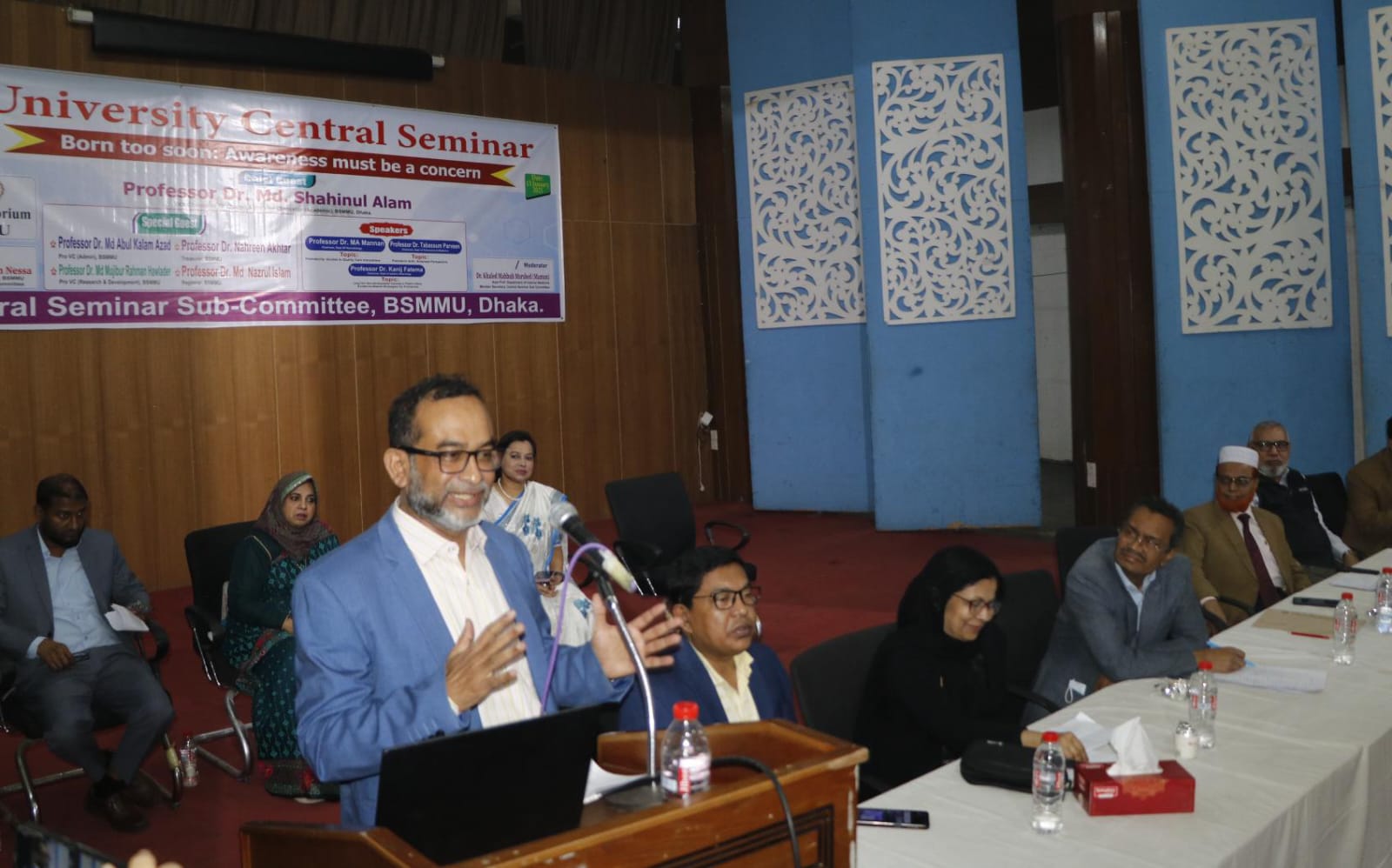
BSMMU Holds Central Seminar on Saving the Lives of Premature Newborns
13 Jan, 2025 09:00 AM - 13 Jan, 2025 11:00 AM |
BSMMU Holds Central Seminar on Saving the Lives of Premature Newborns
Premature newborns are at risk of developing neurological issues in the future.
With proper prenatal care, including care for pregnant mothers, delivery, and postnatal care, the rate of preterm birth can be reduced by three-quarters.
Emphasis on evidence-based treatment by the respected Vice-Chancellor.
A central seminar titled “Born Too Soon: Awareness Must Be a Concern” was held at BSMMU, focusing on providing advanced medical services to save the lives of premature newborns. The seminar was organized by the BSMMU Central Seminar Sub-Committee at the A-Block Auditorium on Monday, January 13, 2025. The seminar, titled "Born too soon: Awareness must be a concern," discussed various aspects of prematurity. Key points included the importance of proper nutrition during pregnancy, regular health check-ups, reducing mental stress, ensuring Kangaroo Mother Care for premature newborns, and the importance of integrated care for the first year of life.
Respected Vice-Chancellor Professor Dr. Md. Shahinul Alam stressed the importance of evidence-based treatment in his speech. He explained that medical treatment must rely on scientific evidence, the experience of physicians, and proven research. He noted that in medical practice, combining clinical studies, experience, and evidence-based research is crucial for creating appropriate treatment plans. Professor Alam emphasized that holding a central seminar at a medical university contributes significantly to increasing knowledge, raising awareness, achieving broader goals, encouraging research and innovation, and promoting Continuing Medical Education (CME).
The seminar was chaired by Professor Dr. Afzalun Nessa, Chairperson of the Central Seminar Sub-Committee, with Dr. Khaled Mahbub Morshed (Mamun) as the moderator. Special guests included Pro-Vice Chancellor (Administration) Professor Dr. Md. Abul Kalam Azad. Professor Dr. Shamim Ahmed, Dean of the Faculty of Medicine, and Professor Dr. Md. Atiar Rahman, Dean of the Faculty of Pediatrics, delivered significant speeches at the seminar.
Professor Dr. Md. A. Mannan, Chairman of the Neonatology Department, presented a paper titled “Prematurity: Access to Quality Care Everywhere,” emphasizing the critical need for proper treatment and care for premature newborns. He highlighted that with increased awareness and proper care, including the Kangaroo Mother Care method, the survival rate and health of premature infants can be significantly improved. Dr. Mannan pointed out that globally, 15 million premature babies are born every year, and of them, 1 million die due to complications, accounting for 35% of total newborn deaths. In Bangladesh, 604,000 premature newborns are born annually, and the country has the highest rate of preterm births globally, at 16.2%. Statistics show that 64% of newborns admitted to the NICU at BSMMU are premature, and the survival rate for those admitted is 80%.
Professor Dr. Kaniz Fatema, Chairperson of the Pediatric Neurology Department, presented a paper titled “Long-Term Neurodevelopmental Outcomes in Premature Infants: Evidence-Based Strategies for Follow-up.” She stated that 10% to 50% of children born prematurely are at risk of developing neurological developmental issues in the future, such as cerebral palsy, autism, hyperactivity, epilepsy, etc. Therefore, it is essential to provide integrated care for premature infants during their first year.
Professor Dr. Tabassum Parveen, Chairperson of the Feto-Maternal Medicine Department, presented a paper titled “Premature Birth: Antenatal Perspective.” She pointed out that Bangladesh has the highest preterm birth rate in the world (16.2%). To tackle this issue, prenatal care, care for pregnant mothers, delivery care, and at least four postnatal care measures are essential. Risk factors, such as teenage pregnancies, multiple pregnancies, infections, chronic diseases, excessive stress, lifestyle behaviors, and malnutrition, must be identified and treated. In cases of preterm delivery risk, pregnant mothers should receive corticosteroids to reduce breathing difficulties in newborns, magnesium sulfate for neuroprotection, antibiotics, and tocolytics. After delivery, all preterm infants need Kangaroo Mother Care. These measures can reduce preterm births by three-quarters at little or no cost.
Editor: Dr. Saiful Azam Ronju
News, Photos & Video: Prosunto Mazumder

